Lung Cancer
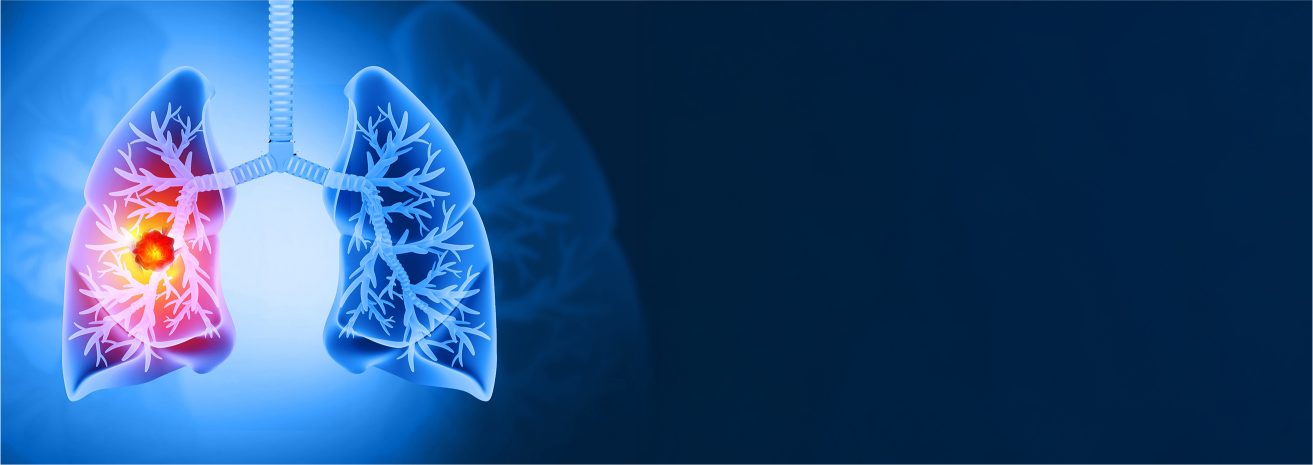
Lung cancer is one of the most common and serious forms of cancer, affecting both men and women. It is classified into two main types: Non-Small Cell Lung Cancer (NSCLC) and Small Cell Lung Cancer (SCLC). Early detection and treatment are critical for improving outcomes. Our multidisciplinary team offers state-of-the-art diagnostics, advanced surgical techniques, chemotherapy, radiation therapy, and targeted therapies tailored to each patient's needs.
Symptoms and Risk Factors
- Persistent cough, sometimes with blood
- Shortness of breath
- Chest pain or discomfort
- Unexplained weight loss
- Fatigue
- Hoarseness
- Frequent lung infections such as pneumonia or bronchitis.
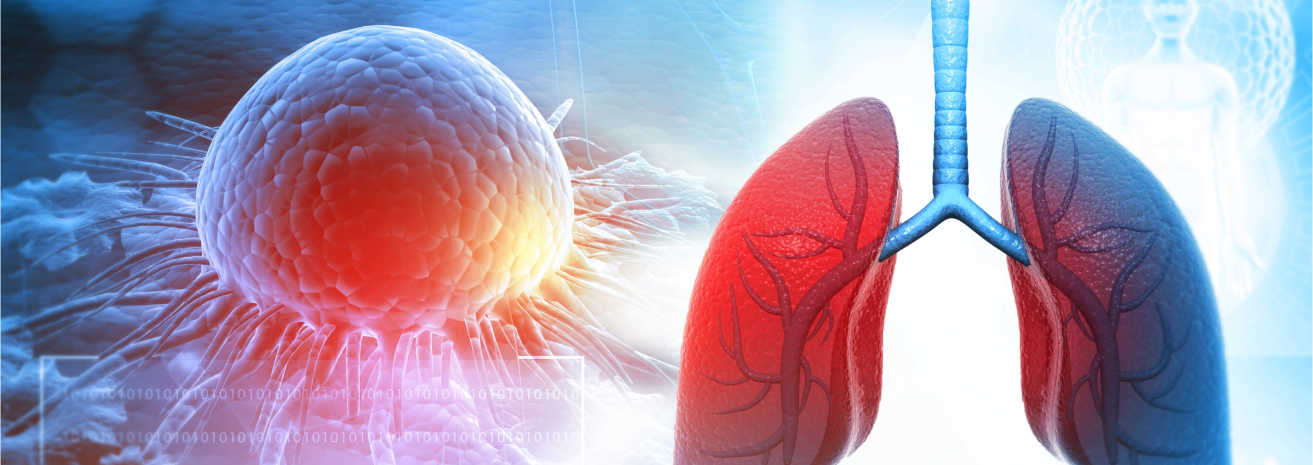
Risk Factors for lung cancer include
Smoking
The leading cause of lung cancer, responsible for the majority of cases.
Exposure to secondhand smoke
Increases the risk of lung cancer in non-smokers.
Radon exposure
A radioactive gas found naturally in soil that can accumulate indoors.
Asbestos and other carcinogens
Occupational exposure to harmful substances, such as asbestos or chemicals, increases the risk of lung cancer.
Family history
A family history of lung cancer can increase the risk, particularly in non-smokers.
Air pollution
Long-term exposure to polluted air, particularly in urban areas, is a contributing risk factor.
Diagnostic Procedures
We use the latest technology to accurately diagnose lung cancer and assess its stage, including
Low-Dose CT Scan
A highly sensitive screening tool for detecting early-stage lung cancer, particularly in high-risk patients.
Bronchoscopy
A thin tube is inserted into the lungs to take samples from the airway for biopsy.
PET-CT and SPECT-CT
Advanced imaging technologies used to detect the presence of cancer and assess its spread.
Needle Biopsy
A biopsy performed by inserting a needle into the lung tissue to retrieve cells for analysis.
Molecular Testing
Genetic testing to identify specific mutations in lung cancer cells that can guide targeted therapy.
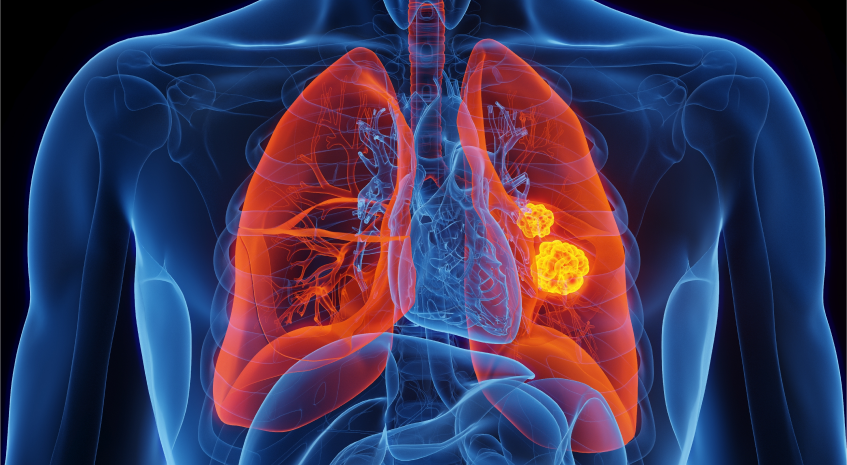
Treatment Options
Targeted Therapy and Immunotherapy
- EGFR, ALK, and ROS1 Inhibitors: Targeted therapies that block specific mutations in cancer cells, often used in non-small cell lung cancer.
- PD-1/PD-L1 Inhibitors (Immunotherapy): These drugs help the immune system recognize and attack lung cancer cells, often used in cases of advanced or metastatic lung cancer.
- Angiogenesis Inhibitors: Drugs that block the formation of new blood vessels that tumors need to grow.
Chemotherapy and Medical Oncology
- Adjuvant and Neoadjuvant Chemotherapy: Chemotherapy may be given before surgery to shrink the tumor or after surgery to eliminate any remaining cancer cells.
- Combination Chemotherapy: For advanced lung cancer, combination therapies are used to improve outcomes.
Radiation Therapy
- Stereotactic Body Radiation Therapy (SBRT): Delivers high doses of radiation with extreme precision, often used for early-stage lung cancer in patients who are not candidates for surgery.
- Intensity-Modulated Radiation Therapy (IMRT): Tailors radiation beams to the shape of the tumor, minimizing damage to surrounding healthy tissue.
- Prophylactic Cranial Irradiation (PCI): Used to prevent the spread of small cell lung cancer to the brain.
Surgical Treatment
Lobectomy: Removal of one of the lobes of the lung where the tumor is located.
Pneumonectomy: Removal of the entire lung, used in cases of large or centrally located tumors.
Segmentectomy or Wedge Resection: Removal of a small section of the lung, often used for early-stage cancers or patients with limited lung function.
Minimally Invasive Thoracoscopic Surgery: Minimally invasive techniques, such as video-assisted thoracoscopic surgery (VATS), allow for smaller incisions and faster recovery.
Multidisciplinary Approach
Lung cancer treatment requires a collaborative effort from a wide range of specialists, including:
- Thoracic Surgeons
- Medical Oncologists
- Radiation Oncologists
- Pulmonologists
- Radiologists
- Pathologists
- Oncology Nurses
- Palliative Care Specialists
This multidisciplinary team works together to develop individualized treatment plans for each patient, ensuring the best possible care at every stage.
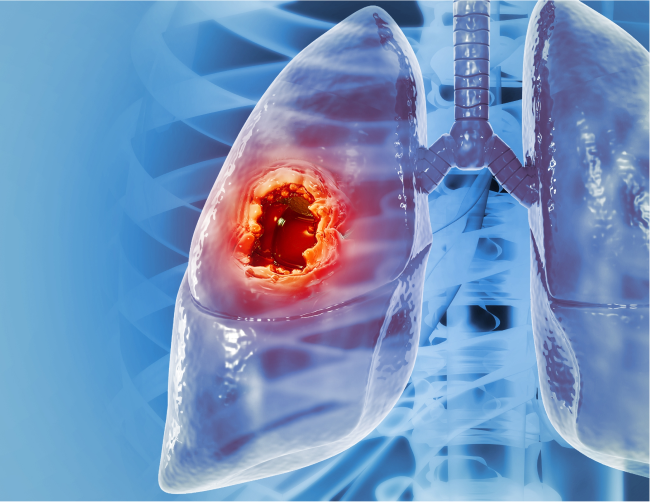
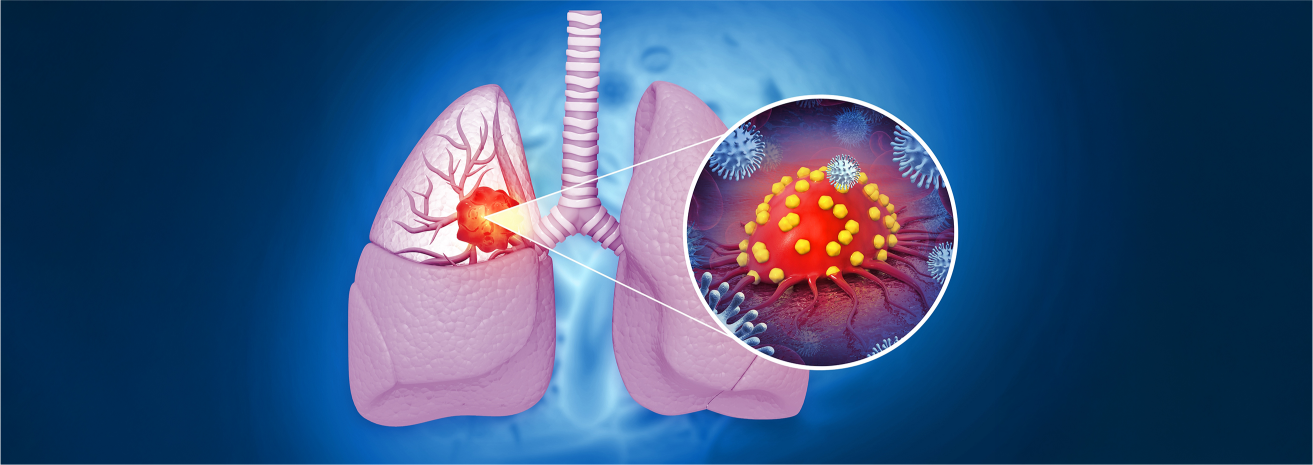
Supportive Care and Patient Services
We provide a range of supportive care services to help patients manage the physical and emotional challenges of lung cancer
Pulmonary Rehabilitation
A specialized program designed to help lung cancer patients improve lung function and overall quality of life.
Smoking Cessation Programs
Support for patients and family members who want to quit smoking and reduce the risk of lung cancer recurrence.
Nutritional Counseling
Guidance on maintaining a healthy diet during cancer treatment, tailored to the specific needs of lung cancer patients.
Palliative Care
Symptom management and quality-of-life support for patients with advanced or metastatic lung cancer.
Psychosocial Support
Counseling services for patients and families to cope with the emotional challenges of a lung cancer diagnosis.
Meet Our Experts
We are committed to guiding lung cancer patients through every step of their journey.
Patient Journey
Initial Consultation
A thorough evaluation with the lung cancer care team, including diagnostic imaging and tests to determine the type and stage of lung cancer.
Personalized Treatment Plan
A customized treatment plan is developed based on the patient's unique diagnosis, preferences, and overall health.
Treatment and Support
Patients receive surgery, chemotherapy, radiation, or other treatments as part of a comprehensive care plan, with access to supportive services throughout.
Follow-Up Care
Regular follow-ups, including imaging and check-ups, to monitor progress, assess treatment response, and ensure long-term health and well-being.












